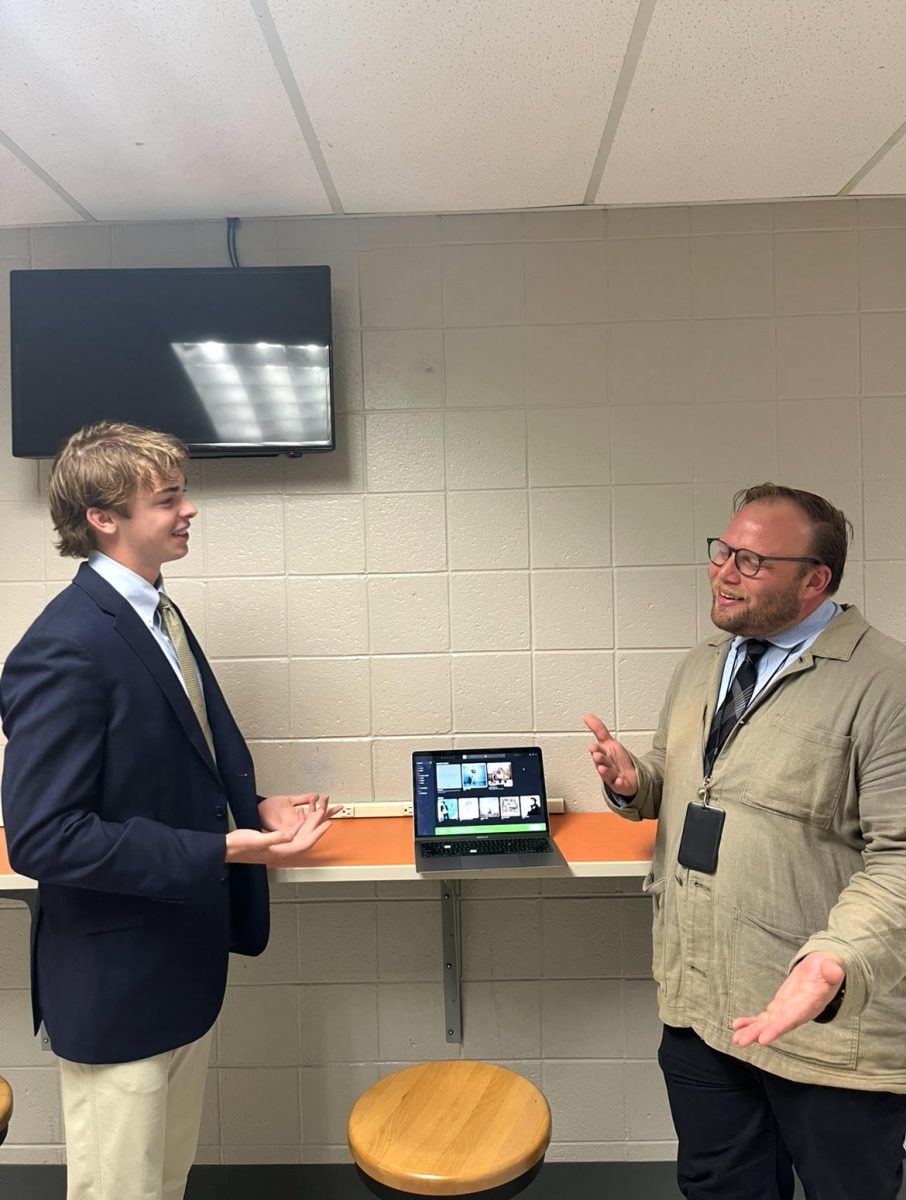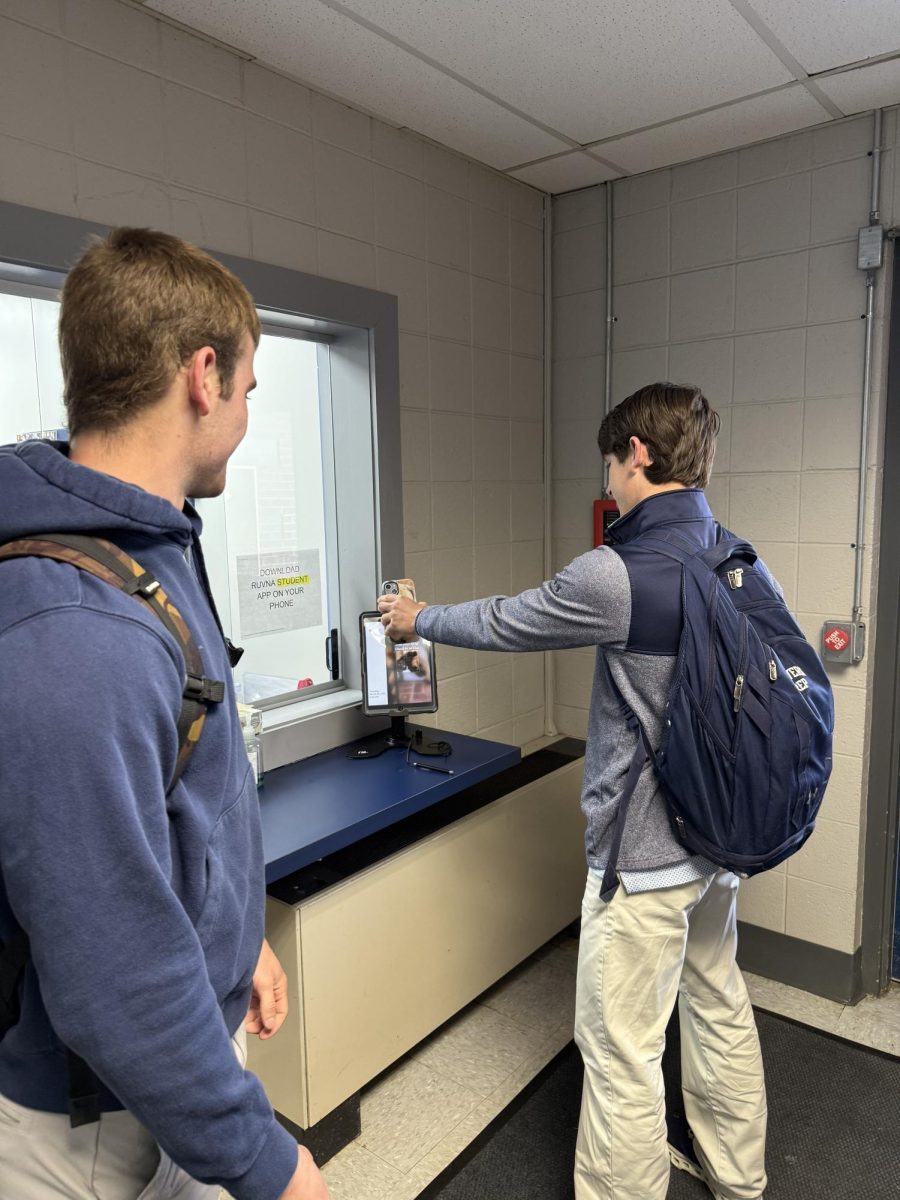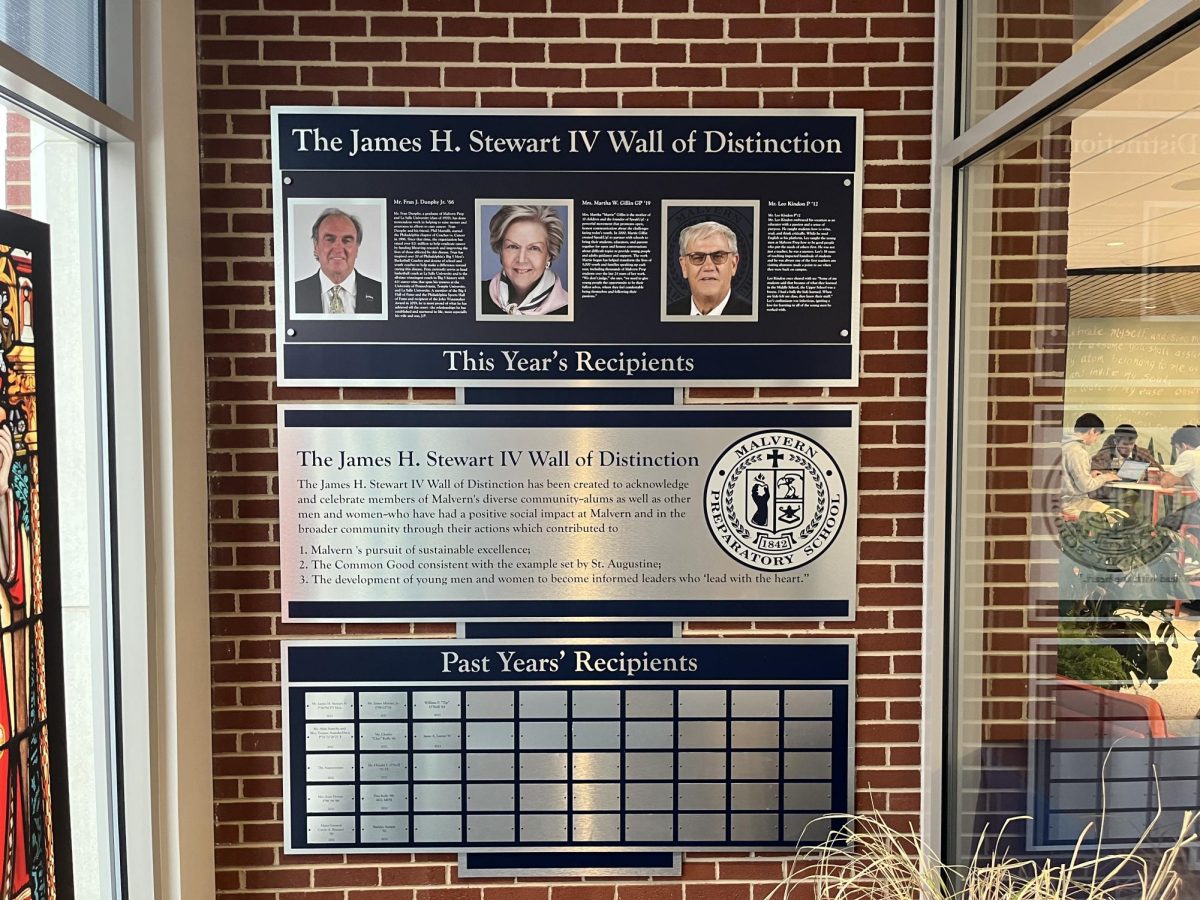As Malvern strives to improve its education, AP classes are now under the microscope.
Malvern has formed a committee of faculty members to review the format of Advanced Placement classes at Malvern.
Advanced Placement classes, or APs, are college-level courses that give students an opportunity to earn college credit depending on their AP test score and college’s policies.
One faculty member on the committee, AP Government teacher Mrs. Harriet Lappas, said that the main focus of the group is to figure out why students take AP classes.
To solve this problem, the committee sent out a survey to juniors, seniors, and parents. After the data for the survey is collected, the committee will then present the information to the Malvern administration.
Lappas explained one of the main questions the survey focused on was the grade point average boost the AP classes provide. For example, the difference in GPA from an “A” in an Honors class to an A in an AP class is up from a 4.2 to a 4.3.
“Are you taking [the class] to help your GPA?” Lappas said. “As educators, we would love to think that the reason that you guys take AP courses is because you have a love of the subject matter, and you want to study something more in-depth.”
However, as an AP teacher herself Lappas knows the reality of the situation.
“I know which students just took my class to get the GPA bump,” Lappas said. “They are not working as hard, they are not as interested, and it really drags the class down.”
Lappas said that the team is looking at possibly removing that GPA bump and making it the same grade weight as an Honors class.
Junior Luke Matzke would not be open to the change in GPA.
“It would remove all incentive to take an AP class for me,” Matzke said. “I would be very disappointed if this GPA change happens because I feel entitled to the boost since I have already worked hard enough to be in these APs.”
Along with this, Head of the Upper School Ronald Algeo said another change could be removing the AP label itself. He explained how the current AP classes work.
“Right now, the AP is really run by the College Board,” Algeo said,” he said. “The College Board gives you very strict deadlines and timelines to cover so much content, and then take the test at the end of the year.”
Algeo said that students do not need to take an AP class to take an AP test for that subject. So, removing the AP label from the class would allow teachers to have more freedom in the curriculum while still preparing for the AP test.
Schools in the area like The Baldwin School and The Haverford School have already been using this type of system the committee is considering. Mr. Neal Cousins, Director of College Counseling at Haverford, was the co-chairman of the committee that removed the AP classes in the 2006-2007 academic year.
“We did a three year study on this with the department chairs and faculty,” Cousins said. “It wasn’t something where we just wanted to jump into without thinking through it.”
During the study, Cousins and the committee spoke with hundreds of the common colleges that their students attend. They found that less and less colleges are giving credit for AP tests.
“AP was never used for placement for admissions, they were used for placement once you get to college,” Cousins said. “And now, what was used as a placement tool has also gone away.”
At Haverford, classes are not named AP, but an advanced level course has an asterisk next to the course name, denoting that it is the hardest course in that subject. The GPA bump is still there, and students have the option whether or not to take the AP test at the end of the year as well.
“As far as the AP test, students still sit for them,” Cousins said. “A lot of our kids do not, because they know that colleges really don’t care about AP courses.”
Cousins described traditional AP classes as a “forced march across a curriculum,” with little time to explore topics further because of the imminent AP test. Since the classes had the AP label removed, Cousins said that this allowed the classes to go much more in depth than before, which better prepares them for college courses.
“When you enroll in college courses, there is not going to be as much breadth, but you will be going much deeper into the text and into the subject,” Cousins said. “I think our students are doing a lot more exploration, they are doing more creative exercises, they are doing a lot more alternative assessments and exercises, and I think that those alternative exercises are really helping our students.”
Cousins said that it took a full year of talking to colleges and researching after they implemented the classes to get them up and running effectively. However, once they did, Haverford found that the college admissions process was not affected at all by their change.
 “That year, our college results were just as strong,” Cousins said. “Since that time, we have not seen it impact our college admissions. In fact, a lot of colleges appreciate the fact that we are offering classes that students can dig into in greater depth and explore.”
“That year, our college results were just as strong,” Cousins said. “Since that time, we have not seen it impact our college admissions. In fact, a lot of colleges appreciate the fact that we are offering classes that students can dig into in greater depth and explore.”
Malvern parent Cathy Preston said that the change under consideration by Malvern would be a step in the right direction because it is more in line with student-centered learning.
“My understanding of an AP course offered at the high school level is that there is a large amount of material covered superficially and there really isn’t time to delve into the subject in depth,” Preston said. “I am not sure how this benefits the student to foster creativity or critical thinking.”
However, Matzke would not be as pleased with a modification. He had one question for the Malvern administration to consider: “Why change something that doesn’t need to be changed?”
Lappas has a message for students like Matzke who are hesitant for change to happen. “This is coming from how to make your educational experience better,” she said.
Despite all of the discussion, Algeo said that there is no motive to get rid of the traditional AP system anytime soon.
“It is just a conversation the school is looking at and getting as much information from students, parents, and the community,” Algeo said. “What serves our students the best?”













